Malaysia automated trading platforms are financial intermediaries that offer Malaysian traders automated trading tools and facilitate buy and sell transactions. They earn most of their revenue through commissions, but some also make money by investing or loaning Malaysian clients money. A Malaysia automated trading platform connects retail investors with the Malaysia and global automated trading tools and financial markets. Automated trading platforms in Malaysia facilitate all trades Malaysian investors make offering scripting functionality, tools and automation. The Malaysia automated trading market is traded on 'interbank' trading, in which participating banks exchange currency electronically during a twenty-four-hour period. The fees associated with this trading process are quite high. As such, the Malaysian broker must hold adequate funds to cover all Malaysian investor's investments.
A Malaysia automated trading platform is a middleman between buyers and sellers of a number of financial instruments including stocks, shares, commodities, cryptocurrency, foreign currency, ETFs and CFDs. These Malaysia automated trading platforms act as intermediaries between them and their Malaysian retail clients. They offer a range of services, data and educational resoures to their Malaysia automated trading platforms clients.
Malaysian traders who use automated trading software that performs transactions based on specified entry and exit price points. still have a responsibility to combine in-depth technical analysis with the establishment of position characteristics such as orders to open, trailing stops, and guaranteed stop orders to minimize trading risk.

🤴 IC Markets is Used By: 180,000
⚡ IC Markets is Regulated by: Australian Securities and Investments Commission (ASIC), Financial Services Authority (FSA), Cyprus Securities and Exchange Commission (CySEC)
💵 What You Can Trade with IC Markets: Forex, Majors, Energies, Metals, Agriculturals,
💵 Instruments Available with IC Markets: 232
📈 IC Markets Inactivity Fees: No
💰 IC Markets Withdrawal Fees: No
💰 IC Markets Payment Methods: Credit Cards, VISA, MasterCard, Debit Cards, Visa, MasterCard, Bank Transfer, PayPal, Neteller, Neteller VIP, Skrill, Poli, Cheque, BPAY, UnionPay, FasaPay, QIWI, RapidPay, Klarna, Electronic wallets (eWallets), Broker to Brokers, Thai Internet Banking, Vietnamese Internet Banking,
IC Markets Risk warning : Losses can exceed deposits

🤴 Roboforex is Used By: 10,000
⚡ Roboforex is Regulated by: RoboForex Lid is regulated by Belize FSC, License No. 000138/7, reg. number 000001272
💵 What You Can Trade with Roboforex: Forex, Minors, Majors, Exotics, Indices, Metals,
💵 Instruments Available with Roboforex: 100
📈 Roboforex Inactivity Fees: No
💰 Roboforex Withdrawal Fees: Yes
💰 Roboforex Payment Methods: Credit cards, VISA, MasterCard, JCB, Debit cards, Bank Transfer, Electronic wallets (eWallets), Neteller, Skrill, Perfect Money, AdvCash, BPAY, China UnionPay, FasaPay, CashU, WeChat Pay, ecoPayZ, AstroPay, Sofort, Giropay, Poli, Wepay, iDEAL, Payoneer,
Roboforex Risk warning : Losses can exceed deposits

🤴 AvaTrade is Used By: 200,000
⚡ AvaTrade is Regulated by: Central Bank of Ireland, Australian Securities and Investments Commission (ASIC), Financial Services Authority (FSA), South African Financial Sector Conduct Authority (FSCA), Financial Stability Board (FSB), Abu Dhabi Global Markets (ADGM), Financial Regulatory Services Authority (FRSA), British Virgin Islands Financial Services Commission (BVI)
💵 What You Can Trade with AvaTrade: Forex, Minors, Cryptocurrencies, Majors, Exotics, Indices, UK Stocks, US Stocks, Energies, Metals, Agriculturals, ETFs, IPO, Bonds,
💵 Instruments Available with AvaTrade: 1000
📈 AvaTrade Inactivity Fees: No
💰 AvaTrade Withdrawal Fees: No
💰 AvaTrade Payment Methods: Credit cards, VISA, MasterCard, Bank Transfer, Electronic wallets (eWallets), PayPal, Neteller, WebMoney, Payoneer,
AvaTrade Risk warning : 71% of retail CFD accounts lose money

🤴 FP Markets is Used By: 10,000
⚡ FP Markets is Regulated by: Australian Securities and Investments Commission (ASIC), Cyprus Securities and Exchange Commission (CySEC), Financial Services Authority (St. Vincent and the Grenadines)
💵 What You Can Trade with FP Markets: Forex, Minors, Majors, Exotics, Indices, Metals,
💵 Instruments Available with FP Markets: 100
📈 FP Markets Inactivity Fees: No
💰 FP Markets Withdrawal Fees: No
💰 FP Markets Payment Methods: Credit cards, VISA, MasterCard, Debit cards, Bank Transfer, Electronic wallets (eWallets), Neteller, BPAY, POLi, PayPal, Neteller, Skrill, PayTrust, NganLuong VN, Fasapay, Broker to Broker, OnlinePay China, Directa24, Klarna, PayTrust88, Payoneer,
FP Markets Risk warning : Losses can exceed deposits
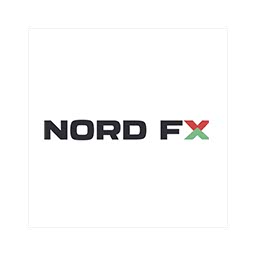
🤴 NordFX is Used By: 10,000
⚡ NordFX is Regulated by: Cyprus Securities and Exchange Commission (CySEC), License No: 209/13
💵 What You Can Trade with NordFX: Forex, Majors, Metals,
💵 Instruments Available with NordFX: 50
📈 NordFX Inactivity Fees: No
💰 NordFX Withdrawal Fees: No
💰 NordFX Payment Methods: Bank Transfer, Neteller, PerfectMoney, WebMoney, FasaPay, CashU, Payza, QIWI,
NordFX Risk warning : Losses can exceed deposits

🤴 XTB is Used By: 250,000
⚡ XTB is Regulated by: Financial Conduct Authority (FCA), FCA number FRN 522157, Cyprus Securities and Exchange Commission (CySEC), CySEC Licence Number: 169/12, Comision Nacional del Mercado de Valores, Komisja Nadzoru Finansowego, Belize International Financial Services Commission (IFSC) under license number IFSC/60/413/TS/19, Polish Securities and Exchange Commission (KPWiG), Dubai Financial Services Authority (DFSA), Dubai International Financial Center (DIFC),Financial Sector Conduct Authority (FSCA), XTB AFRICA (PTY) LTD licensed to operate in South Africa
💵 What You Can Trade with XTB: Forex, Minors, Cryptocurrencies, Majors, Exotics, Indices, UK Stocks, US Stocks, Pennystocks, Energies, Metals, Agriculturals, ETFs,
💵 Instruments Available with XTB: 4000
📈 XTB Inactivity Fees: Yes
💰 XTB Withdrawal Fees: No
💰 XTB Payment Methods: Credit cards, MasterCard, Maestro, Visa, Debit cards, Bank Transfer, Electronic wallets (eWallets), PayPal, Neteller, Skrill, Poli, Paysafe, Payoneer,
XTB Risk warning : 76% - 83% of retail investor accounts lose money when trading CFDs with this provider. You should consider whether you understand how CFDs work and whether you can afford to take the high risk of losing your money.

🤴 Pepperstone is Used By: 89,000
⚡ Pepperstone is Regulated by: Financial Conduct Authority (FCA), Australian Securities and Investments Commission (ASIC), Cyprus Securities and Exchange Commission (CySEC), Federal Financial Supervisory Authority (BaFin), Dubai Financial Services Authority (DFSA), Capital Markets Authority of Kenya (CMA), Pepperstone Markets Limited is incorporated in The Bahamas (number 177174 B), Licensed by the Securities Commission of the Bahamas (SCB) number SIA-F217
💵 What You Can Trade with Pepperstone: Forex, Minors, Cryptocurrencies, Majors, Exotics, Indices, Energies, Metals,
💵 Instruments Available with Pepperstone: 100
📈 Pepperstone Inactivity Fees: Yes
💰 Pepperstone Withdrawal Fees: No
💰 Pepperstone Payment Methods: Credit cards, VISA, MasterCard, Debit cards, Bank Transfer, Electronic wallets (eWallets), PayPal, Neteller, BPAY, POLi, UnionPay, FasaPay, QIWI, Payoneer,
Pepperstone Risk warning : CFDs are complex instruments and come with a high risk of losing money rapidly due to leverage. Between 74-89 % of retail investor accounts lose money when trading CFDs. You should consider whether you understand how CFDs work and whether you can afford to take the high risk of losing your money

🤴 XM is Used By: 10,000,000
⚡ XM is Regulated by: Financial Services Commission (FSC), Cyprus Securities and Exchange Commission (CySEC), Australian Securities and Investments Commission (ASIC)
💵 What You Can Trade with XM: Forex, Stock CFDs, Commodity CFDs, Minors, Majors, Exotics, Equity Indices CFD, Energies CFD, Precious Metals
💵 Instruments Available with XM: 1000
📈 XM Inactivity Fees: Yes
💰 XM Withdrawal Fees: No
💰 XM Payment Methods: Credit cards, Debit cards, Bank Transfer, Electronic wallets (eWallets), Moneta, ABAQOOS, PRZELEWY24, Neteller, PerfectMoney, WebMoney, UnionPay, FasaPay, CashU, Payza, QIWI, SOFORT, Giropay, Payoneer, Skrill,
XM Risk warning : CFDs are complex instruments and come with a high risk of losing money rapidly due to leverage. 77.74% of retail investor
accounts lose money when trading CFDs with this provider. You should consider whether you understand how CFDs work and whether you can afford
to take the high risk of losing your money.
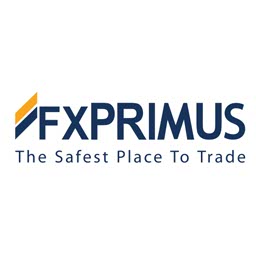
🤴 FXPrimus is Used By: 10,000
⚡ FXPrimus is Regulated by: Cyprus Securities and Exchange Commission (CySEC), Markets In Financial Instruments Directive (MiFID), Vanuatu Financial Services Commission (VFSC)
💵 What You Can Trade with FXPrimus: Forex, Minors, Majors, Exotics, Indices, UK Stocks, US Stocks, Energies, Metals,
💵 Instruments Available with FXPrimus: 130
📈 FXPrimus Inactivity Fees: No
💰 FXPrimus Withdrawal Fees: Varies
💰 FXPrimus Payment Methods: Credit cards, VISA, MasterCard, Debit cards, Bank Transfer, Electronic wallets (eWallets), Neteller, Skrill, Payoneer, SafeCharge, TrustPay, EmerchantPay, Bitcoin, UnionPay, FasaPay, Giropay,
FXPrimus Risk warning : Losses can exceed deposits

🤴 easyMarkets is Used By: 142,500
⚡ easyMarkets is Regulated by: Cyprus Securities and Exchange Commission (CySEC), Australian Securities and Investments Commission (ASIC), Financial Services Authority (FSA), British Virgin Islands Financial Services Commission (BVI)
💵 What You Can Trade with easyMarkets: Forex, Minors, Cryptocurrencies, Majors, Exotics, Indices, Energies, Metals, Agriculturals, Options,
💵 Instruments Available with easyMarkets: 200
📈 easyMarkets Inactivity Fees: No
💰 easyMarkets Withdrawal Fees: No
💰 easyMarkets Payment Methods: Credit cards, MasterCard, Maestro, American Express, JCB, Astropay, Debit cards, Bank Transfer, SOFORT, GiroPay, iDeal, Bpay, Electronic wallets (eWallets), Skrill, Neteller, WebMoney, UnionPay, WeChatPay, FasaPay, STICPAY,
easyMarkets Risk warning : Your capital is at risk
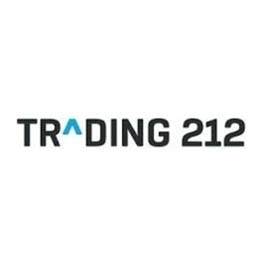
🤴 Trading 212 is Used By: 15,000,000
⚡ Trading 212 is Regulated by: Financial Conduct Authority (FCA), Financial Supervision Commission (FSC)
💵 What You Can Trade with Trading 212: Forex, Minors, Cryptocurrencies, Majors, Exotics, Indices, UK Stocks, US Stocks, Energies, Metals, ETFs, Bonds,
💵 Instruments Available with Trading 212: 10000
📈 Trading 212 Inactivity Fees: No
💰 Trading 212 Withdrawal Fees: No
💰 Trading 212 Payment Methods: Credit cards, MasterCard, VISA, Debit cards, Bank Transfer, Electronic wallets (eWallets), PayPal, Skrill, Dotpay, Carte Bleue, Direct eBanking, Apple Pay, Google Pay, iDeal, Giropay,
Trading 212 Risk warning : CFDs are complex instruments and come with a high risk of losing money rapidly due to leverage. 76% of retail investor accounts lose money when trading CFDs with this provider. You should consider whether you understand how CFDs work and whether you can afford to take the high risk of losing your money.

🤴 SpreadEx is Used By: 10,000
⚡ SpreadEx is Regulated by: Financial Conduct Authority (FCA)
💵 What You Can Trade with SpreadEx: Forex, Minors, Cryptocurrencies, Majors, Exotics, Indices, UK Stocks, US Stocks, Pennystocks, Energies, Metals, Agriculturals, ETFs, IPO, Bonds, Options, Treasuries,
💵 Instruments Available with SpreadEx: 15000
📈 SpreadEx Inactivity Fees: No
💰 SpreadEx Withdrawal Fees: 0, minimum £50
💰 SpreadEx Payment Methods: Credit cards, VISA, Switch, Maestro, Debit cards, Bank Transfer, Payoneer,
SpreadEx Risk warning : Losses can exceed deposits

🤴 Swissquote is Used By: 300,000
⚡ Swissquote is Regulated by: Swiss Financial Market Supervisory Authority (FINMA), Commission de Surveillance du Secteur Financier (CSSF), Financial Conduct Authority, Dubai Financial Services Authority (DFSA), Hong Kong Securities and Futures Commission (SFC), Monetary Authority of Singapore (MAS)
💵 What You Can Trade with Swissquote: Forex, Minors, Majors, Exotics, Indices, UK Stocks, US Stocks, Pennystocks, Energies, Metals, Bonds,
💵 Instruments Available with Swissquote: 100
📈 Swissquote Inactivity Fees: No
💰 Swissquote Withdrawal Fees: $10
💰 Swissquote Payment Methods: Credit cards, Debit cards, Bank Transfer, Payoneer,
Swissquote Risk warning : Losses can exceed deposits
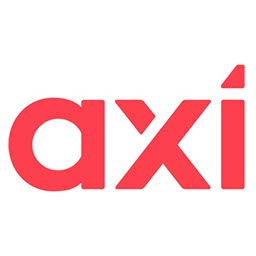
🤴 Axi is Used By: 10,000
⚡ Axi is Regulated by: Financial Conduct Authority (FCA), Australian Securities and Investments Commission (ASIC), Dubai Financial Services Authority (DFSA), Financial Service Authority of St. Vincent and the Grenadines (FSA)
💵 What You Can Trade with Axi: Forex, Minors, Cryptocurrencies, Majors, Exotics,
💵 Instruments Available with Axi: 100
📈 Axi Inactivity Fees: No
💰 Axi Withdrawal Fees: No
💰 Axi Payment Methods: Credit cards, Debit cards, Bank Transfer, Neteller, BPAY, UnionPay, Payoneer,
Axi Risk warning : Losses can exceed deposits
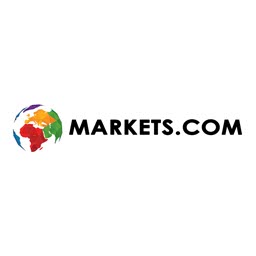
🤴 Markets.com is Used By: 4,000,000
⚡ Markets.com is Regulated by: Cyprus Securities and Exchange Commission (CySEC), Financial Sector Conduct Authority (FSCA), Financial Conduct Authority (FCA), Australian Securities and Investments Commission (ASIC), BVI Financial Services Commission (BVI FSC)
💵 What You Can Trade with Markets.com: Forex, Minors, Cryptocurrencies, Majors, Exotics, Indices, UK Stocks, US Stocks, Energies, Metals, Agriculturals, ETFs, Bonds,
💵 Instruments Available with Markets.com: 2200
📈 Markets.com Inactivity Fees: Yes
💰 Markets.com Withdrawal Fees: No
💰 Markets.com Payment Methods: Credit cards, Debit cards, Bank Transfer, Electronic wallets (eWallets), Skrill, Neteller, PayPal,
Markets.com Risk warning : 67% of retail investor accounts lose money when trading CFDs with this provider. You should consider whether you can afford to take the high risk of losing your money
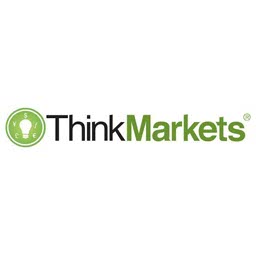
🤴 ThinkMarkets is Used By: 500,000
⚡ ThinkMarkets is Regulated by: Financial Conduct Authority (FCA), Australian Securities and Investments Commission (ASIC), Financial Sector Conduct Authority (FSCA), Financial Services Authority Seychelles (FSA), TF Global Markets (UK) Limited is authorised and regulated by the Financial Conduct Authority FRN 629628, TF Global Markets (AUST) Limited is the holder of Australian Financial Services License number 424700, TF Global Markets (South Africa)(Pty) Ltd is an Authorised Financial Services Provider (FSP No 49835),TF Global Markets Int Limited Is authorised and regulated by the Financial Services Authority Firm Reference Number SD060
💵 What You Can Trade with ThinkMarkets: Forex, Minors, Cryptocurrencies, Majors, Exotics, Indices, Energies, Metals,
💵 Instruments Available with ThinkMarkets: 1500
📈 ThinkMarkets Inactivity Fees: Yes
💰 ThinkMarkets Withdrawal Fees: No
💰 ThinkMarkets Payment Methods: Credit cards, Debit cards, Bank Transfer, Electronic wallets (eWallets), Neteller, Skrill, BitPay,
ThinkMarkets Risk warning : CFDs are complex instruments and come with a high risk of losing money rapidly due to leverage. 71.89% of retail investor accounts lose money when trading CFDs with this provider. You should consider whether you understand how CFDs work and whether you can afford to take the high risk of losing your money
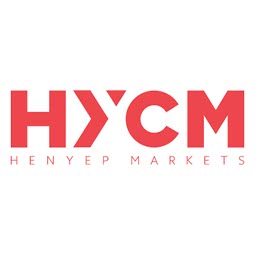
🤴 HYCM is Used By: 10,000
⚡ HYCM is Regulated by: Financial Conduct Authority (FCA), FCA reference number 186171, Cyprus Securities and Exchange Commission (CySEC), CySEC license number 259/14, Cayman Islands Monetary Authority (CIMA), CIMA reference number 1442313, Dubai financial services authority (DFSA), DFSA license number 000048
💵 What You Can Trade with HYCM: Forex, Minors, Cryptocurrencies, Majors, Exotics, Indices, UK Stocks, Energies, Metals, Agriculturals,
💵 Instruments Available with HYCM: 100
📈 HYCM Inactivity Fees: Yes
💰 HYCM Withdrawal Fees: No
💰 HYCM Payment Methods: Credit cards, Debit cards, Bank Transfer, PayPal, WebMoney, Payoneer,
HYCM Risk warning : Losses can exceed deposits

🤴 FxPro is Used By: 1,866,000
⚡ FxPro is Regulated by: Financial Conduct Authority (FCA), Cyprus Securities and Exchange Commission (CySEC), Financial Sector Conduct Authority (FSCA), Securities Commission of the Bahamas (SCB)
💵 What You Can Trade with FxPro: Forex, Minors, Cryptocurrencies, Majors, Exotics, Indices, UK Stocks, US Stocks, Energies, Metals, Agriculturals,
💵 Instruments Available with FxPro: 430
📈 FxPro Inactivity Fees: Yes
💰 FxPro Withdrawal Fees: No
💰 FxPro Payment Methods: Bank, Wire Transfers, Credit cards, Debit Cards, Visa, Maestro, MasterCard, American Express, eWallets, PayPal, Skrill, Neteller, UnionPay
FxPro Risk warning : 75.78% of retail investor accounts lose money when trading CFDs and Spread Betting with this provider
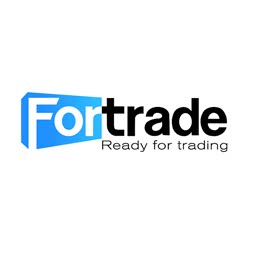
🤴 ForTrade is Used By: 1,000,000
⚡ ForTrade is Regulated by: Financial Conduct Authority (FCA), Cyprus Securities and Exchange Commission (CySEC), Investment Industry Regulatory Organization of Canada (IIROC), National Bank of the Republic of Belarus (NBRB)
💵 What You Can Trade with ForTrade: Forex, Minors, Cryptocurrencies, Majors, Exotics, Bonds,
💵 Instruments Available with ForTrade: 100
📈 ForTrade Inactivity Fees:
💰 ForTrade Withdrawal Fees: No
💰 ForTrade Payment Methods: Credit cards, Debit cards, Bank Transfer, PayPal, Neteller, Payoneer,
ForTrade Risk warning : Your capital is at risk

🤴 Eightcap is Used By: 10,000
⚡ Eightcap is Regulated by: Australian Securities and Investments Commission (ASIC), Vanuatu Financial Services Commission (VFSC)
💵 What You Can Trade with Eightcap: Forex, Minors, Majors, Exotics, Indices, Energies, Metals,
💵 Instruments Available with Eightcap: 100
📈 Eightcap Inactivity Fees: No
💰 Eightcap Withdrawal Fees: Yes
💰 Eightcap Payment Methods: Credit cards, Debit cards, Bank Transfer, POLi, UnionPay, Payoneer,
Eightcap Risk warning : Losses can exceed deposits

How does a Malaysia automated trading platform broker make money in the financial market? This is a good question to answer for new Malaysian traders. A Malaysia broker that offers automated trading, makes money by taking a piece of the action when a Malaysian trader places a buy or sell trade. They take advantage of your loss to make a profit, or vice versa. This is called hedging. Some Malaysia automated trading platform brokers make money when Malaysian traders lose money. Malaysia trading platforms offering automation features may send your exposure to another broker. When it comes to Malaysia automated trading platforms earnings, they earn the most money from offer CFD trading. For example CFD Forex currency pair spreads. The difference between the Ask and Bid rates of a currency pair is known as the spread. Malaysia automated trading platforms earn money on these spreads by adding a mark-up to them before passing on the quotes to Malaysian traders.
Many brokers in Malaysia are market makers, and they set the bid/offer prices of currency pairs. The difference between the two prices is called a spread, and a market maker controls the exposure. Non-market makers, on the other hand, make money from commissions and spread. The spread, or difference between the bid and ask price of a currency pair, is what a Malaysia automated trading platform broker makes money from.
When choosing a automated trading platform in Malaysia, look at how they charge fees. Different Malaysia automated brokers charge different commissions and fees. Be aware of any hidden fees, which may include withdrawal fees and inactivity fees. Some Malaysia automated brokers will charge a small commission when you make a trade, while others will charge a percentage of your transaction. Regardless of what type of account with Malaysia automated trading features you choose, always read the fine print to find out exactly what you're paying before deciding which Malaysia automated trading platform is best for you.
Whether you prefer an MT4, MT5, cTrader platform, there are many options open to Malaysia traders looking for trading automation tools. MT4 and MT5 are safe bets, but make sure you check the Malaysia platforms available for your trading style. Remember that certain Malaysia automated trading platforms may not be compatible with all operating systems, so be aware of this before you choose a automated trading platform in Malaysia.
When choosing a automated trading platform in Malaysia, you should look for one that is regulated. Safety and security of your deposit are top priorities. Compare the Malaysia automated trading platforms, tools, investment research, pricing, and product offerings of various automated trading platforms in Malaysia. While all Malaysia automated trading platforms provide an MT4 trading platform, you should also look into the reliability of the Malaysia broker and its reputation in the industry. A trustworthy Malaysia automated trading platform will provide a high level of support for your trading.
As a Malaysian beginner to automated trading, your funds and time will probably be limited, so a low minimum deposit is the best option. A broker with a low minimum deposit is better than one that requires a large deposit.
An essential factor to look for in a Malaysia automated trading platform is its trading toolset and support for custom scripting. A trading platform is a Malaysian trader's main entry point into the foreign exchange market. It must be reliable and user-friendly. The Malaysia trading platform must offer a comprehensive set of tools, including clear charts, a streaming news source, economic calendar, and upcoming events. Also, your automation feature set with your Malaysia broker should make entry and exit trades easy and without fuss. The interface should be intuitive and easy to navigate, with everything labeled clearly.
The biggest Malaysia automated trading platform in the world is IC Markets. Some of these companies specialise in certain demographics. Some have a global presence while others focus on a niche part of the market. There are several factors to consider when choosing a Malaysia automated trading platform. While a global Malaysia automated trading market is decentralised, various world countries have established regulatory bodies and organisations to monitor market proposals.
While there are advantages to trading without a Malaysia broker, you will lose peace of mind and support. Your Malaysia broker is there to monitor market volatility and mitigate huge spikes. He or she also provides margin stops and hard stops, which are vital for trading on the Malaysia automated trading market. Ultimately, staying safe is the main goal of trading using automated trading tools in Malaysia. Trading without a broker increases the risk and uncertainty of your transactions.
One of the primary benefits of working with a automated trading platform in Malaysia is having access to leverage. Without leverage, you can only trade with a small capital. Leverage is provided by a Malaysia broker in proportion to the investor's capital. Leverage allows Malaysian to make larger trades and increase your profits. But remember that leverage can also wipe out your entire account if the market goes against you. To make sure you're getting the most out of your automated trading trades in Malaysia, work with a broker who will provide you with the best leverage. Make sure you understand the risks with trading using leverage.
For Malaysian newbies, the automated trading tools can seem like a very tempting proposition. For one thing, it only requires a small deposit and is available 24-hours a day, except for a brief time on weekends. This flexibility gives Malaysian traders the freedom to trade at almost any time, which can be particularly appealing.
In the beginning, traders should focus on a few financial instruments, rather than trading on dozens. This way, it is easier to keep track of economic news and learn the rhythms of currencies, stocks and other financial assets. After gaining some experience, only then should Malaysian traders deposit larger sums of money to test out their strategies. It is also important to set limits and keep emotions in check, as trading is a demanding process. The Malaysia automated trading market can be challenging, so it is best to keep emotional responses to a minimum.
While some markets like the foreign exchange market and cryptocurrency tends to be more volatile, automated trading offers a number of benefits to Malaysian day traders. Currency trading is available twenty-four hours a day, making it easier for Malaysian short-term traders to take advantage of fluctuations in the market. automated trading in Malaysia, also allows for speculative trading. Malaysian traders can choose to invest in one currency pair or both.
Day trading requires sufficient price movement in a short period of time. Insufficient liquidity can make it difficult to execute your trading strategies because there is not enough liquidity. A Malaysian day trader can lose profits and make losses because the market is not liquid enough. A Malaysian day trader who focuses on short-term trading will typically target the most liquid markets and assets to maximise the chance of making a profit. However, there are some risks associated with day trading automated trading in Malaysia.
Many Malaysian people who begin trading automated trading in Malaysia don't pay attention to taxation. However, if you're serious about automated trading in Malaysia, you need to think about taxes and your responsibility. After all, you're trading in order to make money, not get into trouble with the government. Listed below are some tax implications that Malaysian should know about. Hopefully, they'll make your life a little easier. If you're not sure what the Malaysian tax rules are, contact a accounting tax professional.
If you're a newcomer to the automated trading market in Malaysia, you may wonder about your tax obligations. The Malaysian tax office will eventually catch up to you and may impose hefty tax penalties. Therefore, it's a good idea to report your Malaysian automated trading profits and losses to the tax authorities.
A great way to start automated trading in Malaysia is with a demo account. Automated trading demo accounts can be used by Malaysian traders to practice before you risk your hard earned money. To get started, open a free account with a trusted broker in Malaysia. You can also take advantage of the free full-scale demo account to practice before you invest real money. It only takes a few minutes to open a Malaysia automated trading demo account online. The best part is that there are no minimum trading capital requirements in Malaysia. You can also start out small with a small amount of capital and practice trading various financial instruments like stocks and currency pairs.
Before you begin trading, Malaysian traders must understand how to read a chart. Price action is the most common type of trading technique. By mastering this technique, you will know where the market is going and what to do to profit from it. Once you know how to read a chart, Malaysian traders can choose a proven strategy. Back-tested automated trading trading strategies have proven consistency in Malaysia and can help you earn money quickly.
If Malaysian invest ten thousand MYR in the market and get a 5% monthly return, you would earn 500 MYR a month, or 6000 MYR a year. There is a high risk of loss with some financial instruments so you could lose your whole invested amount. With high risk automated trades like CFDS you may lose more than your deposited amount. You will not make a fortune overnight, but you will have saved up for a long time and will be able to spend it on other investments.
As a Malaysian trader, you can make real money either as a buyer or a seller. Malaysian automated trading traders buy and sell goods for cheap prices and make money by selling them at a higher price. The volatility and liquidity of the asset's price affect the income level of the trader in Malaysia. The more liquidity and higher volatility an asset has, the faster the trades will be made. Additionally, a Malaysian trader who is consistent in their trading and learn to manage risks, may earn a higher income.
The time it takes to learn about the automated trading market in Malaysia depends on several factors, including your own abilities, effort, and flexibility. In general, it can take up to a year to three years for Malaysian traders master automated trading. However, some people have achieved mastery in much less time. Regardless, you should have patience, as learning about the Malaysia automated trading market involves many ups and downs, so risk management is essential.
Once you have an understanding of the basics, you can move on to more advanced concepts. If you're a Malaysian beginner, it is recommended to start with a micro-account automated trading account. Micro-accounts are the easiest way to learn how to trade automated trading in Malaysia. Even though micro-accounts help you learn about how to trade automated trading in Malaysia more quickly, it will still take time. To get started, you should open a demo account first. Try trading in your Malaysia automated trading platform until you understand the features and functionalities. You may even learn some fundamentals, such as how use tools to automate reading of price data, or how to perform a price action analysis. If you like trading, you'll be more motivated to learn the basics, like coding your own automated scripts.
The stock market is the most common place for Malaysian traders to invest. The reason is simple: stocks are generally more predictable and can see gains over many years. The best time to invest in stocks is when they've been in existence for decades, giving them the time to rebound from short-term market volatility. automated trading, on the other hand is short terms and needs volatility, so it works a little differently in Malaysia.
While automated trading in Malaysia is a great place for short-term strategies, it's also a riskier market in Malaysia. Because of the high leverage involved, automated trading can be less profitable Malaysian traders those with a longer time frame. However, it can be profitable for those who focus on trading for a short period of time. In the long run, stocks are the best way to invest. When you can afford to take higher risks of losing money as you can experience, automated trading becomes an option.
While many Malaysian traders question whether automated trading is legal, the answer is a resounding "yes". The automated trading market in Malaysia is a necessary part of global financial markets. While it can be risky to engage in, this market is necessary for the majority of Malaysian traders who wish to automate manual trading tasks.
Malaysia financial regulators are constantly monitoring Malaysian automated trading platforms, this is why it is important that Malaysian traders only use automated trading platforms that are well regulated in Malaysia. regulated brokerages in Malaysia comply with local regulations and provide better access to different markets.
There are many automated trading platforms in Malaysia make sure to read the reviews and manually check the financial regulators website to see if any issues have been flagged by other traders. Another important step to take is checking the company's official social media accounts in Malaysia. You can learn a lot about the management style of a broker in Malaysia from its social media accounts.
Fiat currencies and cryptocurrencies can both be volatile to Malaysian traders, but cryptocurrencies are decentralised and do not suffer from any government control. Because of this, they are less affected by currency rate changes or political factors. Also, they are not affected by the fluctuations that affect the automated trading trading market in Malaysia. Cryptocurrency is however affected greatly by market sentiment and trends. Depending on the type of currency, there is a difference in volatility levels, and you should understand this before investing.
One advantage of using a cryptocurrency exchange in Malaysia is that you get to trade real cryptocurrencies. Most major cryptocurrency exchanges charge a commission or custodianship fee for holding your coins in Malaysia. This means that it can be a good long-term investment. Another advantage of cryptocurrency is that major automated trading/CFD brokers in Malaysia offer these digital currencies as contracts for differences. This means that you can trade crypto alongside automated trading in Malaysia with the same strategy.
Many Malaysian traders think that the only way to make money is to use technical analysis. But many traders use both in Malaysia. Technical levels and indicators can benefit fundamental traders, and vice versa. If you're looking for a shortcut to success, try trading on the demo accounts of automated trading trading firms in Malaysia. While these demo accounts are a great way to start, they're not the only way to learn how to trade the currency markets. Besides, free resources for learning to trade are usually spread out, and you may be missing out on vital information by sticking with just one learning strategy. You could be wasting time by not taking a good automated trading course in Malaysia.
If Malaysia isn’t quite what you are looking for you can check out some of the best Malaysia alternatives below.
If you would like to see Malaysia compared against some of the best Malaysia automated trading platforms alternatives available right now you can do so by clicking on the links below.